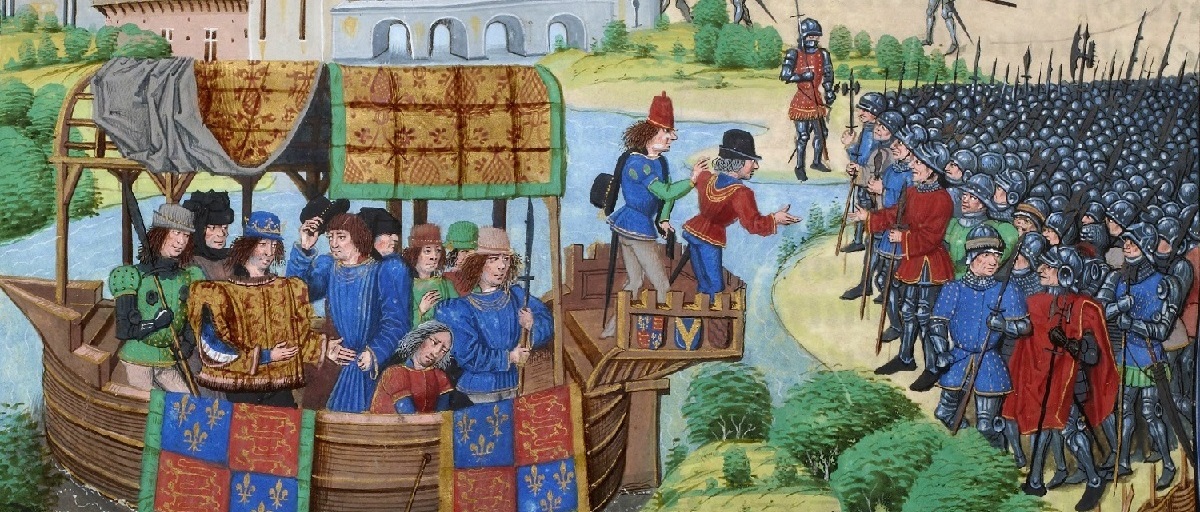Peasants Revolt
Posted on 10th January 2021
Following the Black Death, there was much political instability in England; the people were suffering due to the high taxes placed on them to fund battles abroad. The huge death toll had caused a shortage of workers and this put England under economic pressure.
A law was passed in 1351 ‘The Statute of Labourers’, stating that labourers had to continue to work for the same wages they received before the Black Death; they were unable to demand more money even though there was a labour shortage. The law made it a criminal offence to refuse to work and fines were imposed on those who disobeyed these rules.
In 1361, the law was strengthened further. Peasants could now be branded (mark burned into the skin), to show ownership; they could also be imprisoned if they did not comply with the law.
The parliament of King Edward III introduced the Poll Tax; every person over the age of fourteen was required to pay to fund war against France. When Richard II came to the throne, he introduced another Poll Tax and demanded even more money to fund war. In 1380 he introduced a third Poll Tax.
All of the above contributed to the Peasants Revolt in 1381, which started in Essex following the arrival of Member of Parliament, John Bampton, sent by the government to interview village officials regarding the collection of taxes as there was a shortfall.
Thomas Baker, official from the village of Fobbing, stated that no more money was available; for this the crown tried to arrest him.
Violence broke out and the revolt started to grow. John Bampton managed to return to London, however three of his servants were killed.
The rebels marched first to Canterbury and then to London, gaining extra support as they went. They were armed with sticks, battle axes, swords, and bows and arrows. At this time, Wat Tyler emerged as the rebel’s leader.
The rebels listened to a speech by preacher John Ball in Blackheath and it was here that the Bishop of Rochester was sent to negotiate with them, telling them to return to their homes; the rebels however, rejected this.
As the rebels were marching on London, Richard II travelled by boat from Windsor to the Tower of London on 10 June, for his own safety. On the 13 June, Richard II sailed from the Tower of London to Greenwich to meet with the rebels, but as he refused to come ashore the rebels would not negotiate and this meeting failed.
The rebels advanced further into the city, their numbers swelling as Londoners joined the cause. Many properties were attacked, looted and burned; Fleet Prison was opened and Clerkenwell Priory was destroyed.
The rebels attacked the Savoy Palace, one of the grandest homes of medieval England and home of John of Gaunt, rampaging through it before finally setting the building alight.
The looting, burning and killing continued. Richard II left the Tower of London on 14 June to negotiate with the rebels at Mile End in East London. He agreed to their demands including the abolition of serfdom, however he refused to hand over the officials, the rebels believed responsible for their circumstances.
While the negotiation was taking place at Mile End, rebels stormed the Tower of London, finding Simon Sudbury, Archbishop of Canterbury, Sir Robert Hales, Lord High Treasurer and John Legge, Tax Collector. They were all taken by the rebels and beheaded at Tower Hill.
With the King agreeing to their demands, many rebels returned home, but the hardcore remained, not believing the King to be sincere.
On 15 June, at Smithfields, the King met the rebels again. Rebel leader Wat Tyler was rude to the King and an argument broke out between Tyler and the royal servants. Mayor of London, William Walworth stepped forward and stabbed Wat Tyler, then a squire finished him off.
Richard II addressed the crowd again, telling them that their demands were to be met and giving clemency to all if they returned to their homes; the revolt had all but ended.
Richard II did not stick to his word, on 30 June he ordered the peasants to return to their previous conditions of service, then on 2 July he revoked all agreements made during the revolt, however to keep the peace no further Poll Taxes were imposed.
Tagged as: Junior Middle Ages
Share this post:





